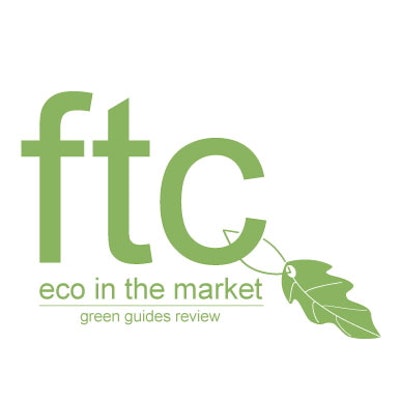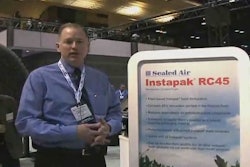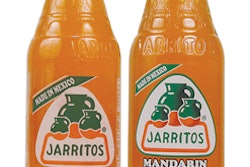A recent Webinar by EPI (Environmental Packaging Intl.) on the proposed changes to the U.S. Federal Trade Commission’s “Green Guides” provided both context for and clarification of the new guidelines, which are available for public comment until Dec. 10. “FTC Green Guides 101 – What the revisions mean for your packaging claims” was presented by EPI project manager Marci Recher, who outlined the types of claims evaluated and enforced by FTC for consumer protection.
Recher began by providing some background on the guides. FTC first issued its Guides for the Use of Environmental Marketing Claims, also known as the Green Guides, in 1992 to help marketers conform to Section 5 of the FTC Act, which prohibits unfair and deceptive practices. Explained Recher, “The guides are strictly there to help marketers avoid making claims that would be misleading to the average, reasonable consumer.”
FTC updated the guides in 1996 and 1998. In 2007, as green marketing claims increased, it initiated the current review of the guides—one year earlier than scheduled. Much of the proposed revisions are based on feedback from a consumer perception study.
Among the changes proposed by FTC:
General environmental benefit claims: Said Recher, “When they [FTC] asked consumers, ‘What do the terms “green” and “environmentally friendly” mean to you,” they found that it implied all kinds of benefits,” including recycled content, renewable content, renewable energy, biodegradable, nontoxic, recyclable, and compostable. While the former guides discouraged marketers from making unsubstantiated claims, the new guides more aggressively prohibit such claims unless they can be qualified, “provided that the qualification is sufficiently clear and competent and understandable.”
Certifications and seals of approval: FTC proposes that seals and certifications of approval be treated similar to general environmental benefit claims, whereby qualifications are clear and prominent, and refer to specific attributes.
“A third-party certification does not mean you have properly substantiated your claims,” Recher told participants. “You need to make sure that certification is based on competent and reliable scientific evidence.”
Degradable claims: Also relevant for biodegradable, oxo-degradable, and photo-degradable claims, revisions in this category propose that an unqualified claim can only be used when the item will completely decompose within one year. Furthermore, FTC wants to revise the guide to state clearly that unqualified degradable claims are deceptive for products or packages destined for landfills, incinerators, or recycling facilities.
Qualified claims are allowed—if there is adequate scientific evidence. However, as Recher pointed out, most marketers would be reluctant to advertise on their packaging, “This item will degrade in 100 years in a landfill.”
Compostable claims: Similar its proposed revision for degradable claims, FTC would like to define what is meant by “a timely manner,” in this guideline, which states: “Compostable claims should be substantiated by competent and scientific evidence that all the materials in the product or package will break down into, or otherwise become a part of, usable compost in a safe and timely manner in an appropriate composting program or facility, or in a home compost pile or device…”
New wording, said Recher, would read “in approximately the same time as the materials with which it is composted.”
In addition, she added, “A marketer should clearly and prominently qualify compostable claims if such services are not available to a substantial majority of consumers or communities where the items are sold.” As an aside, she noted that FTC has informally interpreted “a substantial majority” as 60% of communities.
Recyclable claims: To clarify current guidelines on recyclable claims, FTC proposes a three-tiered analysis to qualify the availability of recycling. For a “substantial majority,” or 60%, no qualifying text would be required. For a “significant percentage,” qualification would be needed, such as “package may not be recyclable in your area.” For “less than a significant percentage,” qualification—“product recyclable only in the few communities that have a recycling program”—would be required.
Without such qualifying text, FTC learned through its consumer survey, consumers believe that when a product is advertised as recyclable, there are complementary recycling services readily available in their area.
Recycled-content claims: Here, FTC is looking for comments on several issues, including defining pre-consumer recycled content; calculating recycled content; and implied recyclable claims.
• Currently, pre-consumer recycled content is defined as material that has been “recovered or otherwise diverted from the solid waste stream…during the manufacturing process.” FTC asks, “Is more guidance needed?”
• Regarding calculating recycled content, it asks, “Are recycled-content claims based on annual weighted average misleading? If so, should these claims be qualified?”
• Finally, FTC asks whether it should suggest that marketers who make unqualified recycled-content claims should also disclose if the item is not recyclable.
Sustainability claims: When it comes to defining “sustainability,” few consumers understand the term, FTC learned in its study. “Many believed that it meant that the item was strong and durable. And, unlike ‘green’ or ‘eco-friendly’ claims, few related sustainability to an environmental benefit,” explained Recher. Based on this, FTC says that it lacks sufficient evidence to provide advice on sustainability claims. Marketers however, are responsible for substantiating consumers’ understanding of this claim in the context of their advertisements.
Renewable materials claims: Consumers perceive renewable materials claims as meaning that all or most of the materials are renewable and/or that the product has other attributes, like recyclability or biodegradability, FTC found. To clear the confusion, FTC recommends that marketers provide specifics about the material used, how it’s sourced, and why it’s renewable. And, the claim of renewable materials should be confined to instances where the entire product/package is made from renewable resources. Otherwise, claims must be qualified to disclose the amount of renewable materials used.
Life cycle claims: “FTC is not going to propose using life cycle analysis data to substantiate claims or suggest that marketers follow a particular methodology,” Recher explained. After reviewing comments on the current guidelines and consumers’ perceptions, it said that it felt it did not have sufficient information on which to basis guidance.

























